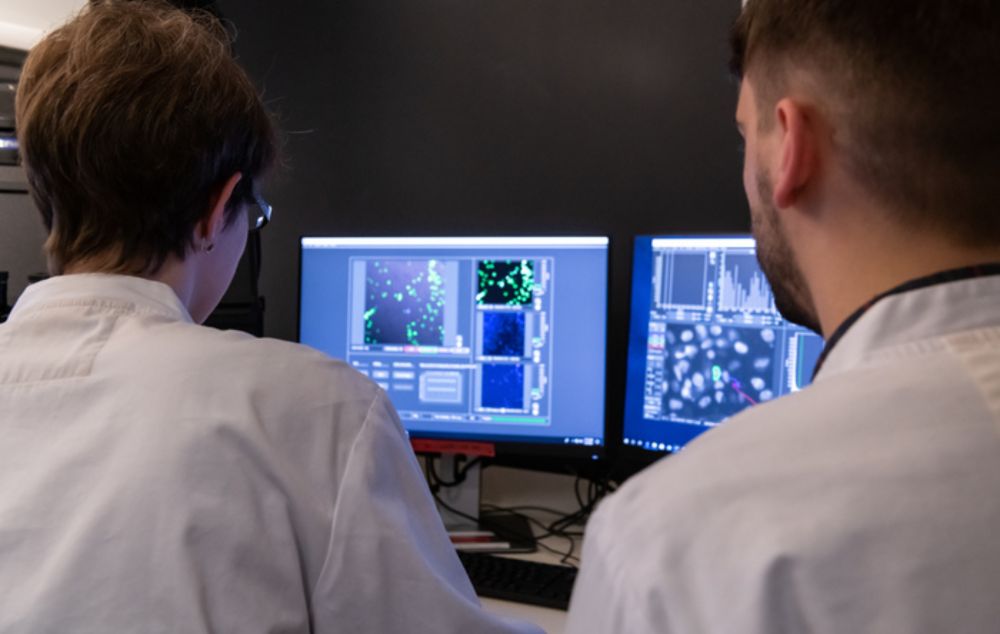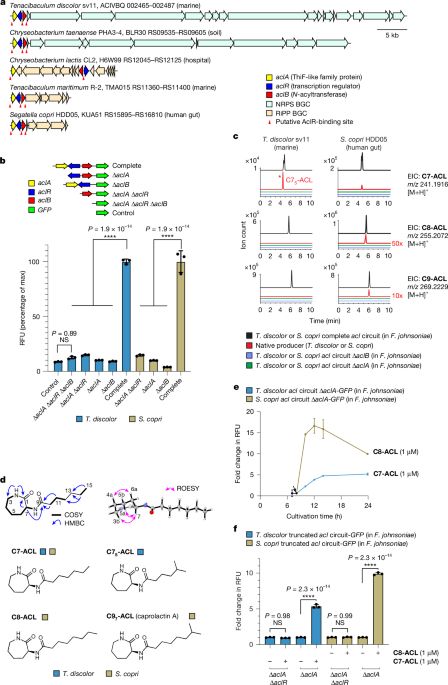🦠 M. tuberculosis, K. pneumoniae, other pathogenic bacteria
🧫 antimicrobial resistance
🧬 molecular genetics
⚗️ chemical biology

Want to help fight against antimicrobial resistance? Join us in London! Open to international applicants.
We have non-clinical & clinical PhD positions to accelerate antibiotic discovery across bacterial species.
November deadlines. More details ⬇️🧵
I am delighted that our paper exploring the impact of Neanderthal-derived variants on the activity of a disease-associated craniofacial enhancer has been published in Development today!
journals.biologists.com/dev/article/...

I am delighted that our paper exploring the impact of Neanderthal-derived variants on the activity of a disease-associated craniofacial enhancer has been published in Development today!
journals.biologists.com/dev/article/...
If you want to develop your academic career in London and help us tackle next-generation drug discovery for Gram-negative infections, apply!
If you're looking to combine CRISPRi and high-throughput assays, reach out to me by email or apply below.
www.linkedin.com/jobs/view/43...
If you want to develop your academic career in London and help us tackle next-generation drug discovery for Gram-negative infections, apply!
Apply now to join us ➡️ www.crick.ac.uk/careers-stud...
Apply now to join us ➡️ www.crick.ac.uk/careers-stud...
We're looking for clinicians who are passionate about research to join the 3-year fully funded programme.
Learn more and see what positions are available ⬇️
www.crick.ac.uk/careers-and-...

We're looking for clinicians who are passionate about research to join the 3-year fully funded programme.
Learn more and see what positions are available ⬇️
www.crick.ac.uk/careers-and-...
If you're looking to combine CRISPRi and high-throughput assays, reach out to me by email or apply below.
www.linkedin.com/jobs/view/43...
If you're looking to combine CRISPRi and high-throughput assays, reach out to me by email or apply below.
www.linkedin.com/jobs/view/43...
Hear our Director, Edith Heard, explain why the Crick is a unique place for curiosity-driven research.
Apply now ➡️ www.crick.ac.uk/careers-stud...
idm.uct.ac.za/media/739223

idm.uct.ac.za/media/739223


Want to help fight against antimicrobial resistance? Join us in London! Open to international applicants.
We have non-clinical & clinical PhD positions to accelerate antibiotic discovery across bacterial species.
November deadlines. More details ⬇️🧵

Want to help fight against antimicrobial resistance? Join us in London! Open to international applicants.
We have non-clinical & clinical PhD positions to accelerate antibiotic discovery across bacterial species.
November deadlines. More details ⬇️🧵
www.nature.com/articles/s41...

www.nature.com/articles/s41...
More info below ⬇️
Guest Editors: Alex Hughes and Rashmi Priya
📅 Deadline: 1 March 2026
journals.biologists.com/dev/pages/ex...
#DevBio

More info below ⬇️

Chen Ed: jobs.calpoly.edu/en-us/job/55...
Coatings: jobs.calpoly.edu/en-us/job/55...
Chen Ed: jobs.calpoly.edu/en-us/job/55...
Coatings: jobs.calpoly.edu/en-us/job/55...
www.embl.org/about/info/e...
We have three positions in microbial genomics at EMBL-EBI, including one in my group. Please do apply, or if you know anyone that would be interested pass on to them
www.embl.org/about/info/e...
We have three positions in microbial genomics at EMBL-EBI, including one in my group. Please do apply, or if you know anyone that would be interested pass on to them
@stanford-chemh.bsky.social! We are searching for a new colleague working at the interface between computation and molecular sciences. See post below and pls forward widely!
chemh.stanford.edu/opportunitie...

@stanford-chemh.bsky.social! We are searching for a new colleague working at the interface between computation and molecular sciences. See post below and pls forward widely!
chemh.stanford.edu/opportunitie...

www.biorxiv.org/content/10.1...

www.biorxiv.org/content/10.1...
www.nature.com/articles/s41...

www.nature.com/articles/s41...
If a result is worth following up on, it's better to address from a different angle & see if it holds water. Strong ideas withstand this
Conversely, there R infinite ways a replication can fail that teach you zip
If a result is worth following up on, it's better to address from a different angle & see if it holds water. Strong ideas withstand this
Conversely, there R infinite ways a replication can fail that teach you zip
Here is a great opportunity to perform a #postdoc with a great mentor in the group of @ljwalport.bsky.social at @imperialcollegeldn.bsky.social!
www.linkedin.com/posts/louise...
#ChemBio #Chemistry #ChemSky

Here is a great opportunity to perform a #postdoc with a great mentor in the group of @ljwalport.bsky.social at @imperialcollegeldn.bsky.social!
www.linkedin.com/posts/louise...
#ChemBio #Chemistry #ChemSky


